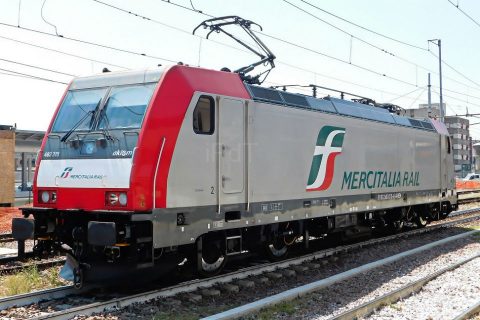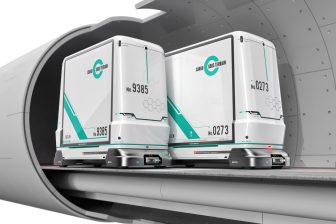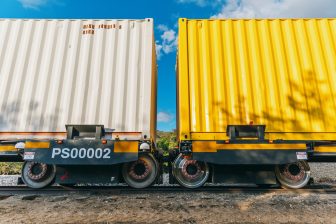
Mercitalia steps on board the intelligent freight train
Mercitalia, freight subsidiary of the Italian Ferrovie dello Stato has joined SBB Cargo and Rail Cargo Group (RCG) in a cross-border innovation partnership. The aim is to develop a standard communication method used for various intelligent applications throughout Europe.
The rail freight companies have signed an agreement with metrology company PJM for the delivery of the hardware. The first intelligent freight train within this project has been doing test runs in Switzerland since August last year, while Austria has had the train on its tracks since April this year.
Automatic brakes
An important aspect of the intelligent freight train is the automatic braking system. Currently, brake tests are carried out manually. Thus, the brakes must be checked for functionality on each newly formed train before departure by an employee on the train. In the future, this should be done automatically, explained RCG, which is a subsidiary of Austrian railway company ÖBB.
For the system development of this innovation, the partners adopted a procedure that enables official recognition for railway companies in other countries. This allows other trains to introduce the system and the automatic brake test. This procedure is suitable for all braking systems (brakes and disc brakes) and is applicable to different types of freight wagons, Mercitalia pointed out.
Integrated market
RCG explained to focus on the standardisation and automation of operating and production processes in order to achieve a significant increase in customer benefit and to optimise the use and maintenance of freight wagons. “The aim of the system solution to be developed is to use it as the de facto standard in the future.”
Mercitalia added: “The goal is to increase the efficiency of freight transport, reduce production costs and thus increase competitiveness. The integration of technological systems will propel the reduction of costs for the manufacturers; for the national rail systems when they propose a tender to acquire new materials and technologies; and for the operators because they will spend less time to obtain the necessary permits of the States to establish services to cross several countries.”





